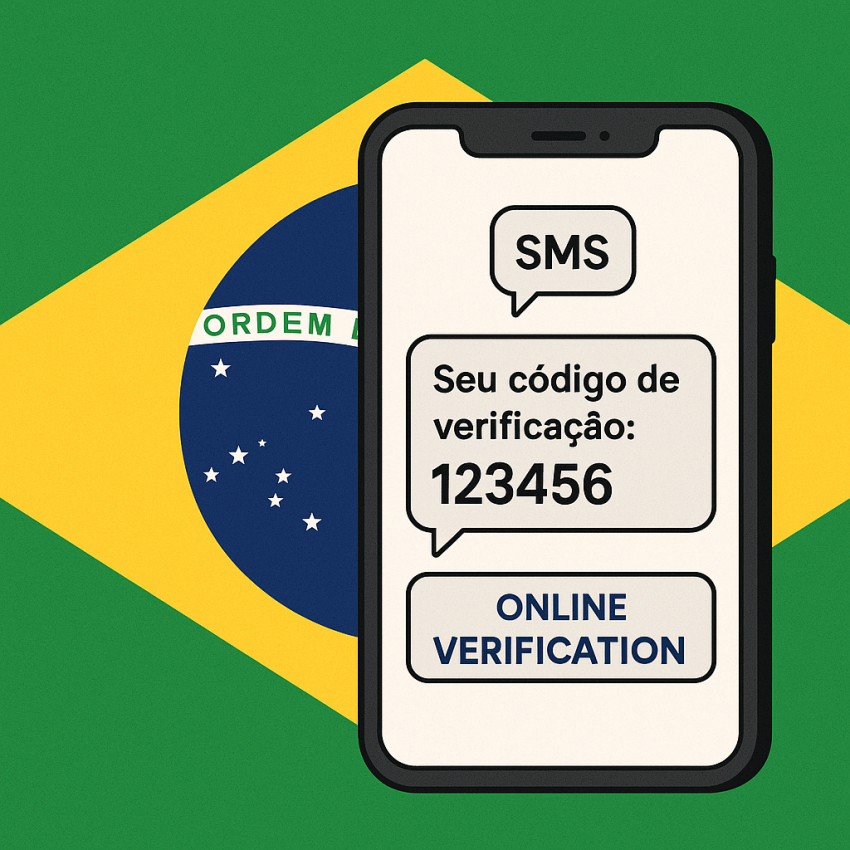
Receive SMS Online in Brazil
Use SMSPVA to receive OTPs and verify accounts with Brazil-based virtual numbers. This guide explains how to get started and stay compliant.
Brazilian virtual numbers allow receiving SMS online for verification and privacy. SMSPVA provides Brazil-based numbers and tools for easy testing and onboarding.
Why use Brazil SMS numbers?
- Protect your privacy by not sharing your real phone number
- Receive OTPs for apps like WhatsApp, Telegram, Google, and Facebook
- Support 2FA and secure account verification
- Accessible from anywhere with internet access
- Helpful for developers and testers
How to get a Brazil SMS number
- Visit SMSPVA.
- Choose the SMS service and select Brazil as the country.
- Request a temporary virtual number.
- Enter the number into the app or service you’re verifying.
- Check the SMSPVA dashboard for incoming messages and OTPs.
Troubleshooting
| Problem | Solution |
|---|---|
| OTP not received | Verify number is correct and request a new OTP if needed |
| Code expired | Request a fresh OTP from the service |
| Number rejected by app | Try another Brazil number or service region |
Safe and legal use
Brazil SMS numbers from SMSPVA should be used for legitimate verification, privacy, and testing. Do not use them for fraud or illicit activities.
Disclaimer: Use SMSPVA numbers responsibly, in compliance with local laws and platform policies.
FAQ: Brazil SMS numbers
What is a Brazil SMS number?
A temporary number from Brazil used to receive SMS verification codes and OTPs.
Can I use it for WhatsApp in Brazil?
Yes, you can use Brazil SMS numbers to verify apps like WhatsApp where supported.
Is it safe?
When used responsibly and for legitimate verification, it is safe for receiving OTPs.
How long do numbers stay active?
Numbers stay active for the duration of the verification or rental period; request new ones as needed.
Which apps can I verify?
OTP verification for apps such as WhatsApp, Telegram, Google, and Facebook is possible with Brazil numbers.
Is using Brazil SMS numbers legal?
Yes, when used for lawful verification and privacy purposes.
Learn more about online verification best practices and privacy safety.


